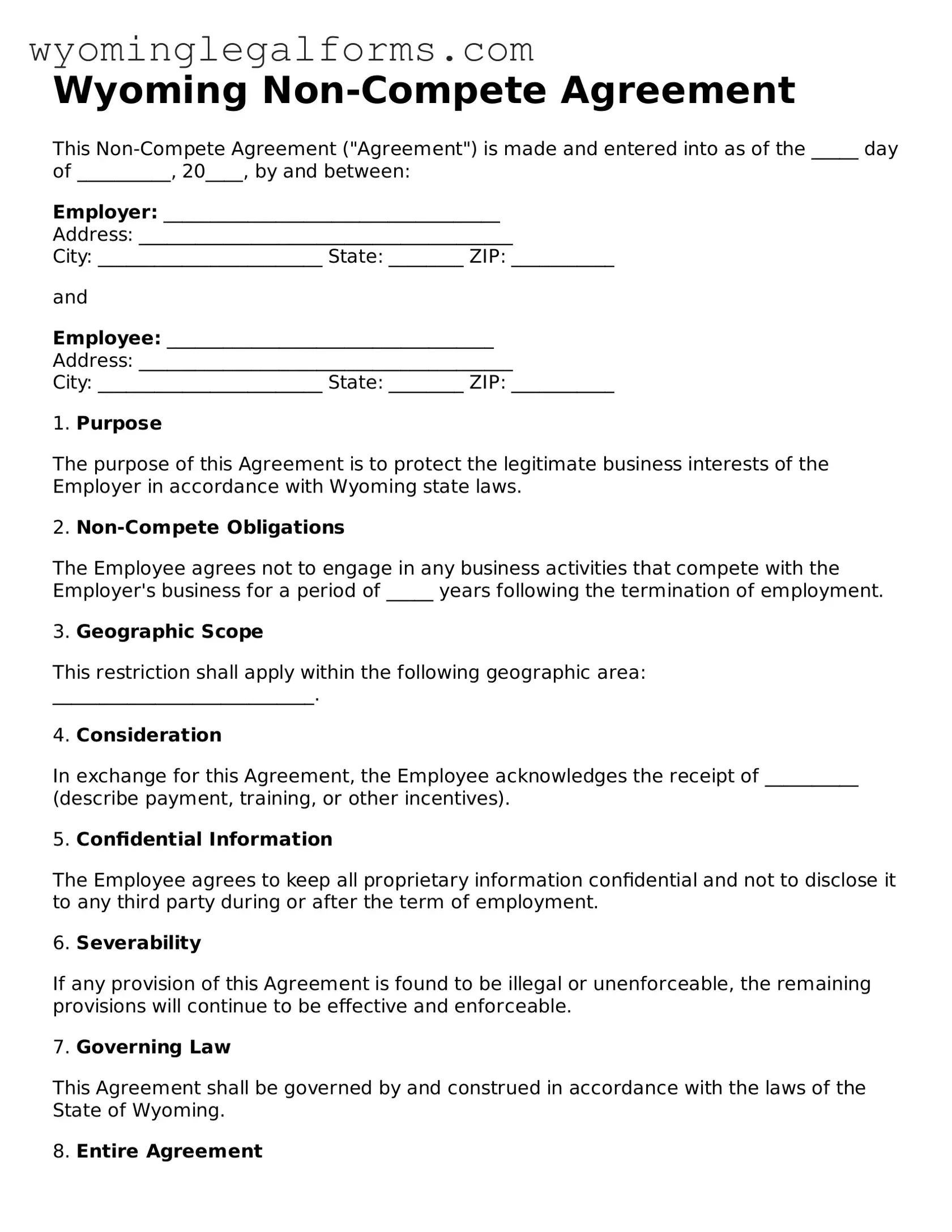Printable Non-compete Agreement Form for Wyoming
A Wyoming Non-compete Agreement is a legal document that restricts an employee's ability to work for competing businesses after leaving their current employer. This form serves to protect the employer's interests by preventing the sharing of sensitive information and maintaining a competitive edge. Understanding the nuances of this agreement is essential for both employers and employees navigating the job market in Wyoming.
Access Document Here

Printable Non-compete Agreement Form for Wyoming
Access Document Here
Time-sensitive? Finish the form quickly
Finalize your Non-compete Agreement online quickly and download it.
Access Document Here
or
➤ PDF File
